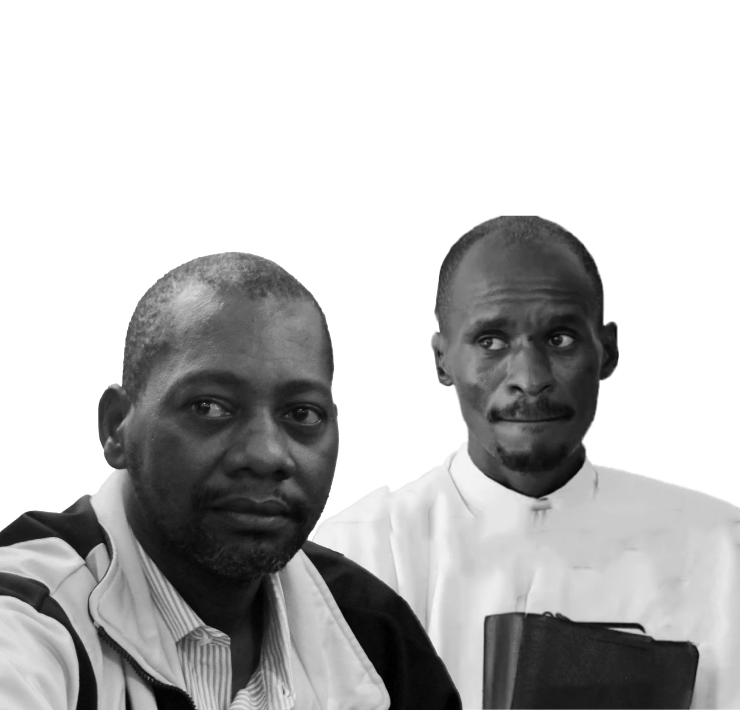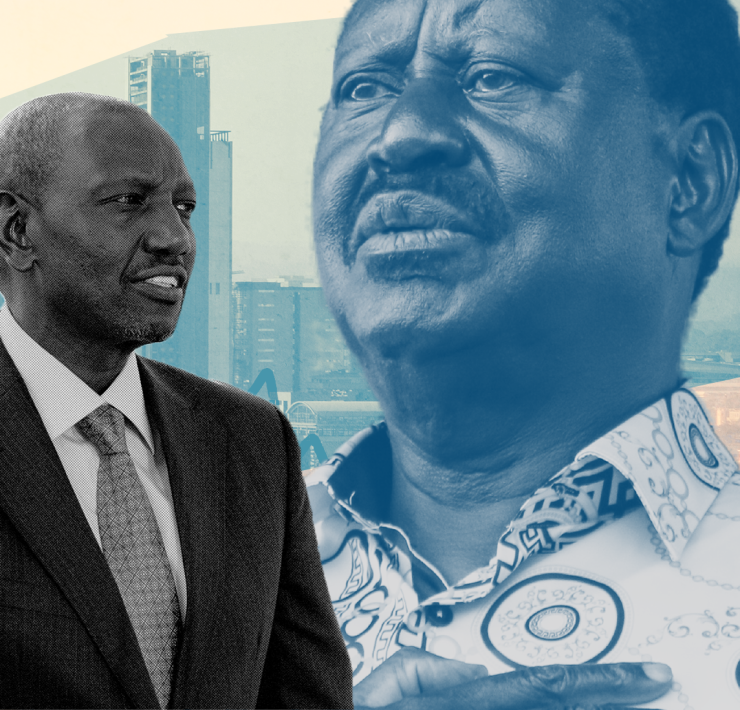The Malindi doomsday cult is global news and the Kenyan Government is keen to catch up. The Shakahola massacre was revealed not by police detective work but by media stringers and correspondents who doggedly tracked the weird goings-on at the Good News International Ministries ranch of Pastor Mackenzie Nthenge. This year, during a four month period of official oblivion, Mackenzie and some acolytes allegedly killed and secretly buried more than 145 of his church congregation. We are told by the Kenya Red Cross that over 500 other Mackenzie followers are reported missing and believed to lie undiscovered in more of the shallow graves that are scattered across the 800 acre ranch.
On his first crime scene visit, Interior Minister Kithure Kindiki assured the world that in his opinion, he could sustain a prosecution against Pastor Mackenzie for genocide. The genocide charge has some resonance in Kenya but makes zero sense. The Minister, as a Professor of International Law, knows the ingredients of the international crime of genocide, and it is doubtful that such ingredients would be found in the murderous acts of this particular two-bit preacher who somehow amassed a huge following and 800 acres of land at the Kenyan Coast.
It’s patently obvious that Pastor Mackenzie is a suspect person and the press has yet to find anyone to say anything good about him, but is he really a terrorist according to our law? What I can see is that he is not as well dressed as his peers at the pulpit, and more and more is being presented to us as a deranged “other” who somehow managed to mislead a la Jim Jones. An interesting fact perhaps, Mackenzie and Jones were both heavily influenced by an American doomsayer named William Branham.
I’d invite you to compare the vigour of the legal defence activities on behalf of Pastor Mackenzie Nthenge and another televangelist in trouble, Pastor Ezekiel Odero, of the New Life International Church. Unlike the scruffy Mackenzie, Pastor Ezekiel wears raiments of white and overtly poses as a fabulously wealthy preacher man with his own city at Mavueni, not too far from the Good News ranch. He actually bought parts of his asset base from Mackenzie a couple of years ago. Pastor Ezekiel is, according to the Director of Public Prosecutions, facing 14 proposed criminal charges “that include; murder, aiding suicide, abduction, radicalization, genocide, crimes against humanity, child cruelty, fraud and money laundering.” Much the same as Mackenzie.
Are these charges sustainable or are they being laid to please the Minister and public opinion?
Not all the charges are complete no-hopers.
For example, in money laundering prosecutions, the burden of proof is reversed and it will be for both Mackenzie and Ezekiel to establish the legitimate origin provenance of their assets and bank accounts.
Ordinarily, it shouldn’t be too hard for a church to raise the presumption that their religious nature establishes the bona fides of their bank balances, but in both the Mackenzie and Ezekiel instances, the press is openly suggesting to us that there may be something else going on here.
In summary, we can glean that apart from tithes and offerings, Pastor Ezekiel has various sources to explain his apparent wealth. Within his 65 acre compound, he has, apart from erecting a prayer stadium with a capacity of 45,000 people, established an international school (currently with 7 students) that charges over $2,000 per term. He and his followers run a farm that supplies all food needs to a 200-room hotel within the same compound. Projects in the making include “a supermarket, a hospital, a rehabilitation centre and a university.” None of this can be done without money, so Pastor Ezekiel is also in the business of selling anointed trinkets such as bottles of living water and handkerchiefs.
This is an international enterprise, in that fewer than 100 followers according to Pastor Ezekiel are actually from the region where he has based his empire. He told the Daily Nation recently, “most of my followers come from all over the world. Those from the coast are less than 100.” The pastor reaches the world via a TV station, recently shut down by the Communications Authority of Kenya and receives money via “two financial institutions” located inside the compound.
In his defence, a lot of stress is being placed on addressing the laundering charge.
Pastor Ezekiel’s lawyers have for the past week harped on at great length about 28 bank accounts, though ultimately failing to get orders to prevent their inspection. An inter partes hearing will require the Government to justify maintaining temporary freezing orders, and the Pastor is at liberty to conduct services and even open new bank accounts if any financial institution will allow him to pass a KYC examination. Like everyone else, he is entitled to challenge any asset freezing interim orders in court. I suppose he will argue, just as his spiritual father and my acquaintance Pastor Pius Muiru of the Maximum Miracle Centre does, that there’s no biblical prohibition against wealthy pastors.
But when you think about it, churches are extremely vulnerable to the oldest method of money laundering, mingling illegal cash with legally earned funds. Like many laundry set-ups, they are essentially cash-based businesses that give no receipts. It is not beyond the realms of possibility that a diabolical launderer could start or approach a corrupt church with commingling in mind. The scale is there to justify ever growing bank balances – remember Mavueni hosts 45,000 people sitting and giving income tax free – and the mission nature of churches means there is always some expansive cash-based building project going on that requires the church to contract a host of suppliers.
A word of caution. Historically, when the Government wants to take without proof it raises the spectre of money laundering, by very bad people. Public perception properly primed accepts legal shortcuts and asset confiscation unquestioningly. The Kenyan tendency to believe the Government whenever it overloads the indictment against some unpopular person is what perpetuates the use of this unfair prosecutorial tactic. It gets results but may do harm to innocent persons mixed up with the target.
For example, to this day, there are hundreds of depositors of Charterhouse Bank and Imperial Bank whose savings are tied up in these two banks; both arbitrarily closed without due process more than a decade ago for banking offences which their peer banks are routinely fined for. What I’ve just written is extremely controversial in NGO and financial media circles, but it is true.
I know Raila Odinga has already rejected the Justice Lessit Shakahola Commission of Inquiry, and presumably does not approve of the Rev. Mutava Musyimi Task Force on Religious Regulations, but he too is engaged in a rush to judgement. The Commission of Inquiry, as I have previously argued, is a legitimate investigative tool regardless of the propaganda against it.
Unless one is speaking with a forked tongue, consistency demands that we acknowledge that commissions of inquiry are constitutional and useful when society is confronted with a novel situation.
Author
-
Mwalimu Mati is a Kenyan lawyer and governance consultant with over 25 years of work experience in the fields of economic governance, anti-corruption, research, advocacy and publication. Mati was the Chief Executive Officer of Mars Group Kenya, one of Kenya’s leading anti-corruption and fiscal transparency watchdogs, as well as publisher of www.marsgroupkenya.org, in its time Kenya’s largest governance web portal which specialised in anti-corruption and financial analysis. Previously, Mati was Executive Director of Transparency International (2006-2007), before which role he served the same organization as Deputy Executive Director (2002-2006). Mati cut his teeth in the 90s working as Programme Officer at the Public Law Institute, where he worked for close to a decade. Driven by his life-mission which is to empower citizens to demand accountability by sharing knowledge, Mati has been at the forefront in the provision of information resources of all forms and shapes to the public as he seeks to promote transparency in public and corporate sectors. Mati consults for Kenyan and international corporations and development agencies in strategy development, programme review and analysis, due diligence background checks and his specialist field of governance and anti-corruption. Mati is widely published locally and internationally, and has led in the writing and publication of some of Kenya’s most ground breaking governance and anti-corruption reports
Mwalimu Mati is a Kenyan lawyer and governance consultant with over 25 years of work experience in the fields of economic governance, anti-corruption, research, advocacy and publication. Mati was the Chief Executive Officer of Mars Group Kenya, one of Kenya’s leading anti-corruption and fiscal transparency watchdogs, as well as publisher of www.marsgroupkenya.org, in its time Kenya’s largest governance web portal which specialised in anti-corruption and financial analysis. Previously, Mati was Executive Director of Transparency International (2006-2007), before which role he served the same organization as Deputy Executive Director (2002-2006). Mati cut his teeth in the 90s working as Programme Officer at the Public Law Institute, where he worked for close to a decade. Driven by his life-mission which is to empower citizens to demand accountability by sharing knowledge, Mati has been at the forefront in the provision of information resources of all forms and shapes to the public as he seeks to promote transparency in public and corporate sectors. Mati consults for Kenyan and international corporations and development agencies in strategy development, programme review and analysis, due diligence background checks and his specialist field of governance and anti-corruption. Mati is widely published locally and internationally, and has led in the writing and publication of some of Kenya’s most ground breaking governance and anti-corruption reports







